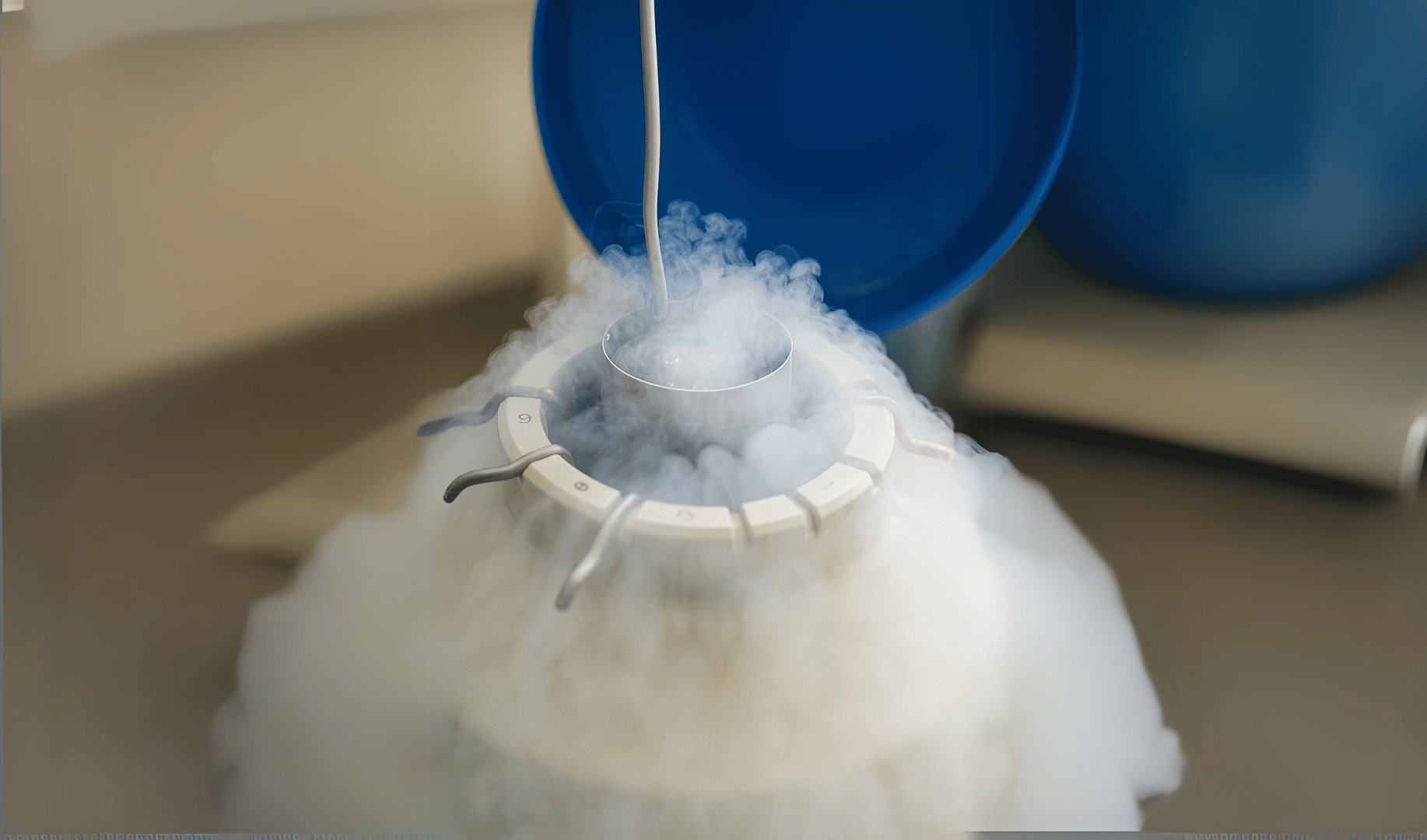Preserving fertility is a decision that combines science, foresight, and life planning. The cryopreservation of eggs, semen, or embryos is now a safe, effective, and increasingly common tool for women, men, and couples who want to decide when and how to start a family.
In this blog, we explain what each of these methods consists of, for which cases they are recommended, and what their benefits are.
Egg Freezing: Preserving Female Reproductive Potential
Egg (or oocyte) freezing allows for the storage of female reproductive cells in their best state, to be used later in in vitro fertilization treatments.
How is it done?
Controlled ovarian stimulation: The patient administers hormones for 10-12 days for her ovaries to produce multiple eggs.
Ultrasound and hormonal monitoring.
Follicular puncture (egg retrieval): An outpatient procedure under sedation where the eggs are extracted from the ovary.
Vitrification: An ultra-rapid freezing technique that prevents the formation of crystals that could damage the cell.
Who is it indicated for?
Young women who do not yet wish to be mothers but want to preserve their fertility.
Oncology patients who must undergo chemotherapy or radiotherapy.
Women with conditions like endometriosis or low ovarian reserve.
Individuals who will undergo surgeries that affect their ovaries.
Benefits:
Higher probability of future reproductive success if done before the age of 35.
Reduces the pressure of the “biological clock.”
Allows for delaying motherhood without compromising oocyte quality.
Semen Freezing: Quick, Simple, and Effective
Semen freezing is a very simple, non-invasive procedure that has been widely used in reproductive medicine for decades.
How is it done?
Semen sample collection.
Semen analysis (spermiogram): The concentration, motility, and morphology of the sperm are evaluated.
Processing and freezing in liquid nitrogen at -196°C.
Who is it indicated for?
Men who are about to undergo oncology treatments.
Men with low sperm quality or risk of future deterioration.
Patients who wish to become fathers later, with a sample stored at their peak fertile moment.
Couples undergoing assisted reproduction treatments who wish to avoid issues on the day of the procedure.
Benefits:
Accessible, safe, and fast procedure.
Semen quality remains stable upon thawing.
Allows for planning fatherhood with greater freedom.
Embryo Freezing: An Option for Couples or Women Who Have Already Decided to Be Mothers
Frozen embryos are the result of the fertilization of an egg with a sperm in the laboratory. Once formed, they are preserved in a vitrified state to be transferred to the uterus at the most appropriate time.
How is it done?
Ovarian stimulation and egg retrieval (as in oocyte freezing).
Fertilization in the laboratory with a partner’s or donor’s sperm.
Embryo culture until day 3 or day 5 (blastocyst stage).
Vitrification of viable embryos.
Storage in a cryopreservation bank.
Who is it indicated for?
Couples undergoing in vitro fertilization (IVF) treatment.
Women who wish to be single mothers using donor sperm.
Individuals who prefer to have their embryos ready for transfer in a future, calmer, or safer cycle.
Couples who want to preserve embryos before a medical treatment that could affect fertility.
Benefits:
Higher success rate in IVF with already developed embryos.
Allows for planning pregnancy without rush.
Offers the possibility of trying more than once with a single ovarian stimulation.
Preserving gametes or embryos is not a hasty or extreme decision. It is a safe, increasingly common clinical resource that allows you to gain time and plan with greater freedom.
At Fertidonors, we offer free medical and psychological counseling to help you make the best decision for your reproductive future.
Would you like to schedule your first appointment?
Write to us or visit our contact section for more information.



